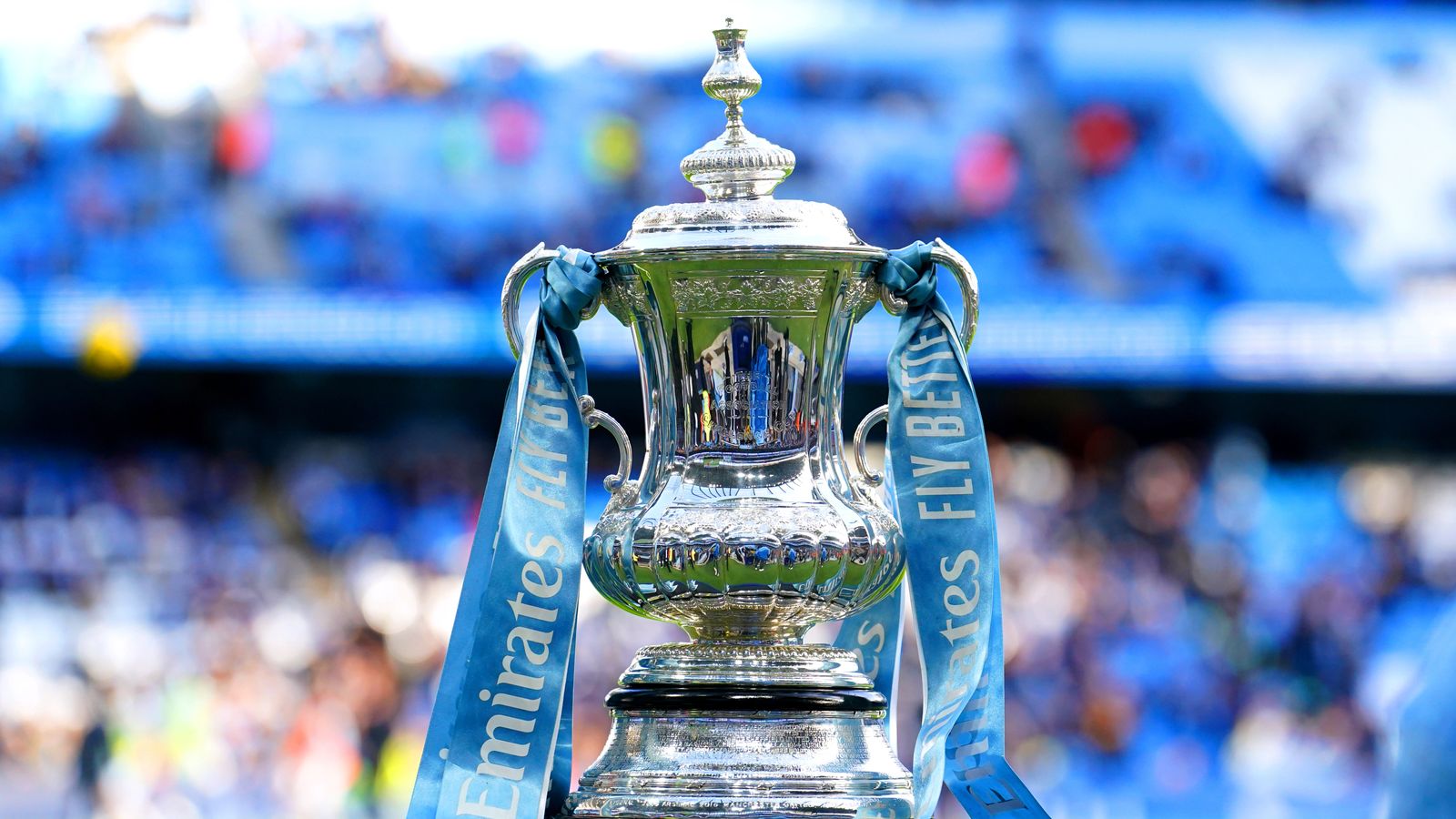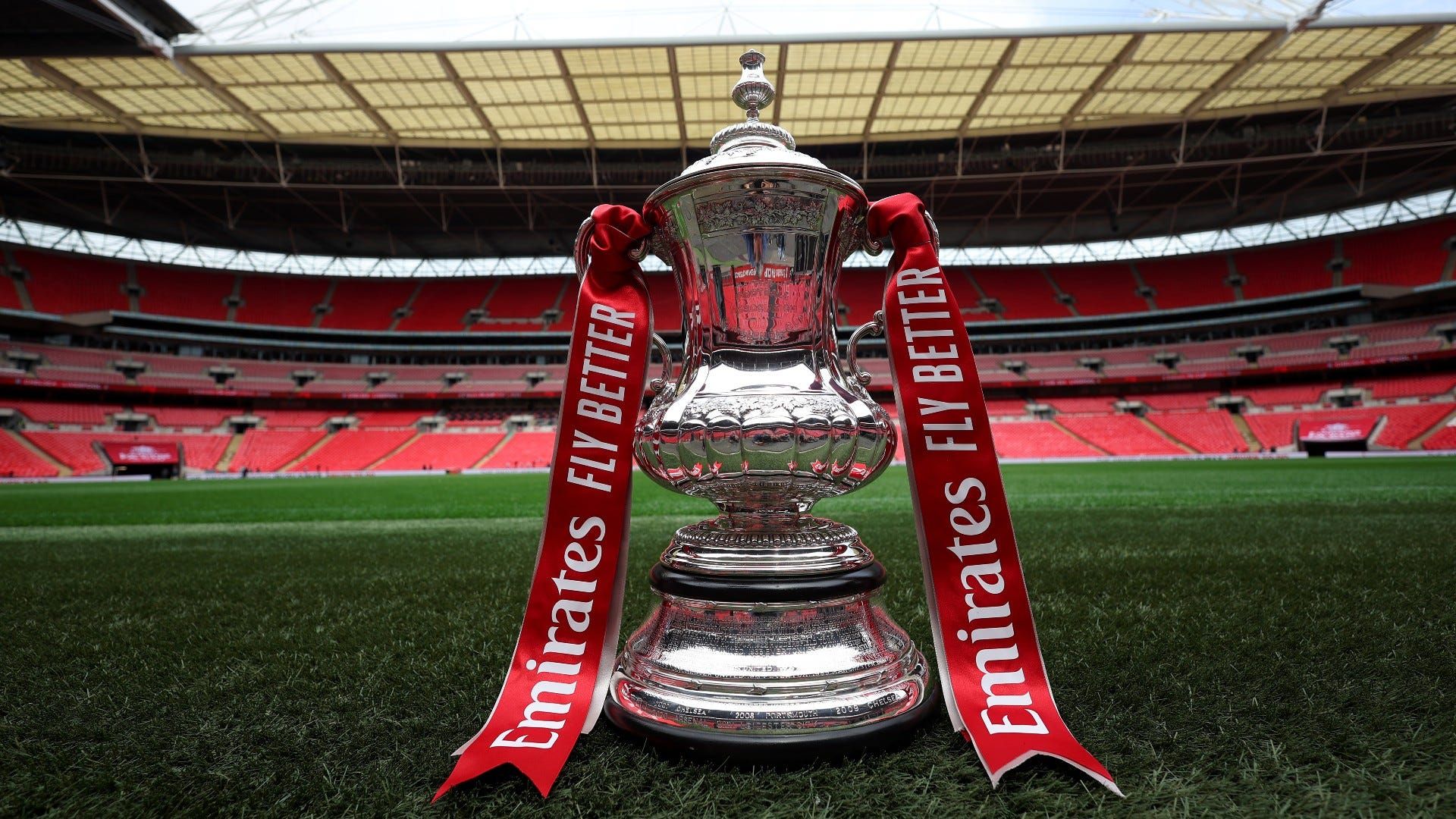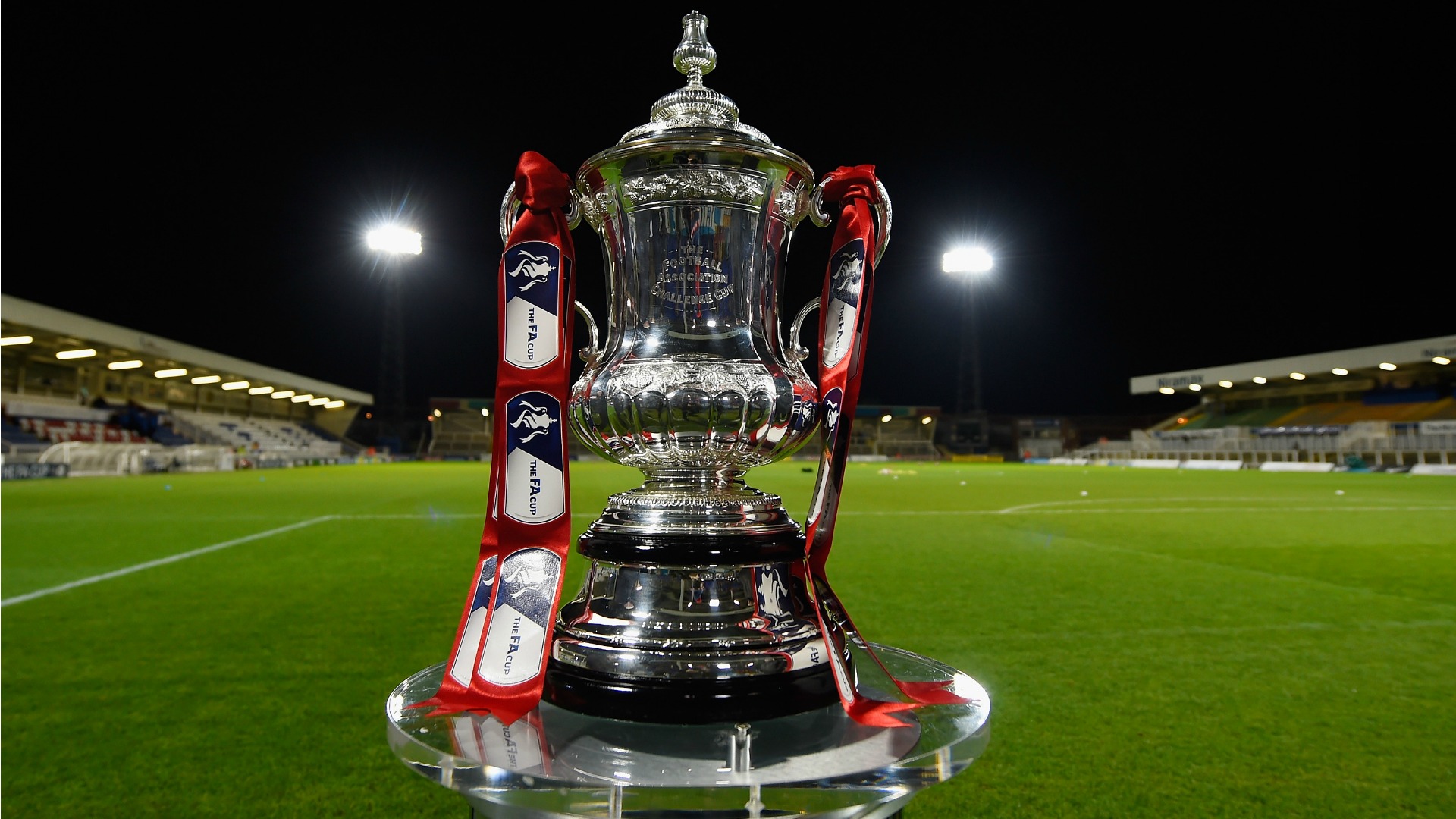La FA Cup, the oldest national football competition in the world, boasts a rich history spanning over 150 years. From humble beginnings to its current status as a globally recognized tournament, the FA Cup has witnessed legendary moments, shaped the identity of English football, and captivated millions of fans worldwide. This deep dive explores its evolution, iconic moments, and enduring legacy.
This exploration delves into the FA Cup’s captivating past, examining its development from its inception to the modern era. We will analyze its impact on English football, highlighting its role in shaping tactics, influencing club finances, and fostering a unique cultural identity. Further, we will project potential future developments for this storied competition, considering the ever-evolving landscape of the sport.
The History of the FA Cup
The FA Cup, the oldest national football competition in the world, boasts a rich history spanning over 150 years. Its evolution reflects the development of football itself, from a relatively amateur sport to the global phenomenon it is today. This journey includes changes in rules, memorable matches, and the rise and fall of various clubs.
Evolution of the FA Cup
Established in 1871, the FA Cup’s initial years saw participation primarily from amateur clubs in and around London. The competition gradually expanded, incorporating teams from across England and eventually evolving into a national tournament. Early matches were often characterized by rough play and inconsistent rules, a stark contrast to the highly regulated and professionalized game of today.
Significant FA Cup Moments
The FA Cup’s history is punctuated by iconic moments. The 1923 final, a replay between Bolton Wanderers and West Ham United, is remembered for its dramatic ending. The 1970 final saw Chelsea beat Leeds United in a controversial match, and the 1980 final witnessed a remarkable comeback by West Ham United against Arsenal. The competition has also witnessed many David versus Goliath stories, highlighting the magic of the cup.
Changes in Rules and Regulations
Over the years, the FA Cup has seen several rule changes. The introduction of replays for drawn matches, modifications to the offside rule, and the implementation of video assistant referees (VAR) are some examples. These adjustments reflect the ongoing effort to improve fairness, safety, and the overall quality of the competition. The introduction of professional football significantly altered the dynamics of the competition, leading to increased competitiveness and higher stakes.
Underdog Victories, La fa cup
The FA Cup’s unique charm lies in its ability to level the playing field. Numerous lower-league teams have achieved stunning upsets against giants of the English game, creating memorable moments and proving that anything is possible on the day. These victories often inspire hope and demonstrate the spirit of competition at the heart of the tournament.
Notable FA Cup Winners and Players
The FA Cup has been won by a variety of clubs, showcasing the fluctuating fortunes of English football. Many legendary players have graced the competition, leaving an indelible mark on the tournament and the sport itself. The following sections highlight some of the most significant contributors to the FA Cup’s legacy.
FA Cup Winners (Selected Years)
| Year | Winner | Score | Top Goalscorer |
|---|---|---|---|
| 1996 | Manchester United | 1-0 | Eric Cantona |
| 2000 | Chelsea | 1-0 | Jimmy Floyd Hasselbaink |
| 2007 | Chelsea | 1-0 | Didier Drogba |
| 2010 | Chelsea | 1-0 | Didier Drogba |
| 2012 | Chelsea | 2-1 | Didier Drogba |
| 2013 | Wigan Athletic | 1-0 | Ben Watson |
| 2018 | Chelsea | 1-0 | Eden Hazard |
| 2019 | Manchester City | 6-0 | Sergio Aguero |
| 2020 | Arsenal | 2-1 | Pierre-Emerick Aubameyang |
| 2021 | Leicester City | 1-0 | Youri Tielemans |
Most Successful Clubs
A bar chart could effectively visualize the most successful clubs in FA Cup history. The x-axis would represent the clubs, and the y-axis would show the number of FA Cup wins. The bars would be color-coded for better visual distinction. Labels would clearly identify each club and its win count. This would immediately highlight the dominance of certain clubs over the years.
Legendary FA Cup Players
Five legendary players who significantly impacted the FA Cup include: Bobby Moore (West Ham United), whose leadership and defensive prowess were instrumental in West Ham’s 1964 victory; Sir Stanley Matthews (Blackpool), known for his magical dribbling skills; Dixie Dean (Everton), a prolific goalscorer; Eric Cantona (Manchester United), whose charisma and skill helped define an era; and Thierry Henry (Arsenal), a player renowned for his elegance and goalscoring ability.
Most Memorable FA Cup Final Goals
A list of memorable goals would include: Bobby Moore’s winning goal in the 1964 final; Alan Shearer’s volley for Blackburn Rovers in 1995; Roberto Di Matteo’s volley for Chelsea in 2012; and Youri Tielemans’ stunning long-range strike for Leicester City in 2021. Each goal is memorable for its beauty, importance, and impact on the game’s narrative.
The FA Cup’s Impact on English Football: La Fa Cup
The FA Cup has played a crucial role in shaping English football’s identity, fostering a unique sense of tradition and national pride. Its impact extends beyond the field, influencing tactics, playing styles, and the financial landscape of the sport.
FA Cup’s Role in Shaping English Football

The FA Cup has served as a platform for showcasing the talent and passion of English footballers, contributing to the development of the national team and fostering a sense of national unity. Its history is interwoven with the evolution of the game, reflecting changes in rules, playing styles, and societal attitudes.
Prestige and Cultural Significance
Compared to other domestic cup competitions globally, the FA Cup holds a unique level of prestige and cultural significance. Its long history and tradition make it a coveted trophy, representing a pinnacle of achievement for English clubs. While competitions like the Copa del Rey (Spain) and the DFB-Pokal (Germany) have their own importance, the FA Cup’s longevity and the stories associated with it give it a special place.
Influence on Tactics and Playing Styles
The FA Cup has influenced the development of football tactics and playing styles. The competition has seen the rise and fall of various tactical approaches, reflecting broader trends in the sport. The emphasis on winning, even against superior opposition, has encouraged innovation and strategic thinking.
Financial Implications
Winning the FA Cup has significant financial implications, particularly for smaller clubs. Prize money, increased media attention, and potential qualification for European competitions can provide a substantial boost to a club’s finances. For larger clubs, while the financial reward might be less proportionally significant, winning the FA Cup adds to their prestige and brand value.
The Modern FA Cup
The modern FA Cup retains its core principles while adapting to the changing landscape of football. Television coverage, media attention, and the increasing professionalism of the game have significantly impacted its popularity and format.
Current Format and Structure
The FA Cup features a knockout format, with teams from various leagues participating. The competition starts with preliminary rounds involving non-league teams, culminating in the final at Wembley Stadium. The draw is conducted randomly, creating unpredictable matchups and increasing the potential for upsets.
Qualification Process
Teams from the English Football League (EFL) and the Premier League enter the competition at different stages based on their league position. Lower-league teams participate in preliminary rounds, gradually progressing through the competition. This structure ensures a fair chance for all clubs, regardless of their league standing.
Check what professionals state about league cup 76 and its benefits for the industry.
Recent Unexpected Results

Recent years have seen several unexpected results, showcasing the unpredictable nature of the FA Cup. Lower-league teams defeating Premier League giants have become a staple of the competition, adding excitement and intrigue for fans.
Impact of Television Coverage and Media Attention
Television coverage and media attention have significantly enhanced the FA Cup’s popularity, increasing its global reach and exposure. The tournament’s compelling narratives and potential for upsets have made it a highly sought-after television product.
The Future of the FA Cup
The FA Cup faces challenges in maintaining its relevance in the modern football landscape. Globalization, evolving fan engagement, and the increasing dominance of major leagues require innovative strategies to ensure the competition’s long-term sustainability.
Potential Future Format
A potential format for the next decade might include incorporating elements of globalization, such as allowing participation from top clubs in other European leagues. This could increase the competition’s prestige and attract a wider audience. The introduction of a group stage in the early rounds could also provide more games and revenue opportunities.
Challenges and Strategies for Maintaining Relevance
Challenges include competition from other tournaments and the demands of a packed football calendar. Strategies for maintaining relevance include enhancing the fan experience, leveraging technology for better engagement, and ensuring the competition remains unpredictable and exciting.
Attracting New Fans and Ensuring Sustainability
Attracting new fans could involve targeting younger audiences through digital platforms and interactive experiences. Sustainability can be ensured through increased revenue streams, strategic partnerships, and a focus on community engagement.
Innovative Ideas to Improve Fan Experience
Innovative ideas include enhancing the matchday experience with interactive technology, improved stadium facilities, and community events surrounding the matches. Creating more accessible and affordable ticket options for families could also broaden the fan base.
The FA Cup’s enduring appeal lies not only in its historical significance but also in its capacity to produce dramatic upsets and unforgettable moments. From David vs. Goliath clashes to nail-biting final matches, the competition continues to enthrall fans and shape the narrative of English football. Its future, while facing challenges in a rapidly changing world, remains bright, promising continued excitement and relevance for generations to come.



